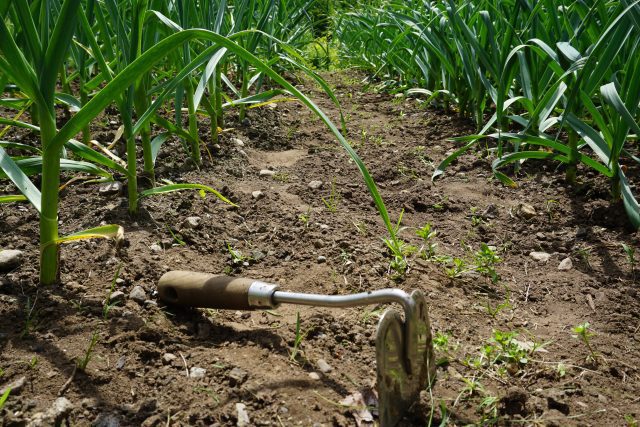Wonderful, both raw and cooked, onions enrich the flavor of many recipes worldwide and pair well with just about anything except sweet fruits and desserts. Surprisingly packed with health benefits, recent research proves that organic onions offer higher bioactive compound levels than when conventionally grown. Not only that, but earlier organic food health benefit studies may very well have flaws.
Back in 2012, news media gleefully announced that it was a scientific fact; studies found organic produce was no healthier than conventional. More recently, researchers found that though organic foods have similar nutrition levels, they contain greater amounts of phytochemicals – those health benefits beyond common nutrition values that promote natural disease resistance and healing. These are richest in strong-flavored red and yellow onions, while mild white and sweet onions contain very little.
 A new study just published in mid-June in the American Chemical Society Journal of Agricultural and Food Chemistry points to conflicting results in previous studies being due to weather variations and short-term research. This 6-year study in Ireland on both red and yellow varieties found that cool, wet seasons caused reduced red organic onion flavonoids, while warmer, drier seasons increased them. This makes perfect sense, as any gardener knows, the weather has a direct influence on your harvest quality.
A new study just published in mid-June in the American Chemical Society Journal of Agricultural and Food Chemistry points to conflicting results in previous studies being due to weather variations and short-term research. This 6-year study in Ireland on both red and yellow varieties found that cool, wet seasons caused reduced red organic onion flavonoids, while warmer, drier seasons increased them. This makes perfect sense, as any gardener knows, the weather has a direct influence on your harvest quality.
With up to 20% greater flavonol content, organic red onions are significantly more beneficial to your health than when grown with synthetic fertilizers. They found higher antioxidants in both varieties when grown organically. Conventionally grown onions are bigger, but as we learn more every day – bigger isn’t always better.
Why the difference? Dr. Kim Reilly, who set up the study at the Teagasc Food Research Centre in Dublin attributes organic onions’ increased phytochemical content to the soil food web microorganisms. She notes that their discoveries open huge possibilities “for looking into how the soil microbiome can change, plus how it affects the plant and the food that we eat.” Their research also shows that the penchant for fast answers from short-term testing doesn’t provide a true picture, which any research really should. And why would a scientist never consider that weather has anything to do with what’s inside food grown outdoors? If excessive rain can water down flavor, then common sense says it reduces everything else from nutrients to shelf-life too.
As far as the benefits to you, onions offer both natural health and beauty perks. Onion juice is great for both your hair and skin, including as a non-chemical blemish and acne treatment. Low fat, low carb onions are high in vitamin C and a dietary source of vitamins A, K, and B6, betaine pantothenic acid, choline, folate, and niacin. They contain the minerals: calcium, fluoride, iron, manganese, magnesium, phosphorus, potassium, selenium, and zinc.
As mentioned earlier, organic onions give you up to 20% greater disease-fighting compounds, including 2 types of quercetin and anthocyanin. They improve your dental health, bone density, cholesterol level, and blood pressure are antibacterial and anti-inflammatory, and connected to significantly reducing several cancer risks. WHO recommends onions as a great natural treatment for relief of coughs, colds, and asthma.
Now that you’ll want to increase organic onions in your diet, you’ll be delighted to know that they’re very easy to grow! You can produce good quantities of red and yellow varieties in small areas with full sun. Start your crop from seed or sets (seedlings) with 3″ plant spacing (9 per square foot), but you’ll have a faster harvest from sets. You start seeds in the fall, and plant sets in spring, so cold climate gardeners prefer growing them from sets.
Learn More:
- 6-Year Organic Onion Study (2017)
- Microorganisms & Phytochemical Content
- Amazing Health Benefits of Onions
- Health Benefits of Onion Juice
- Preparation Temps Affect Phytonutrient Retention (2014 study)
- Source: EurekAlert
Feature image courtesy of Hedgeview Farm.
I don’t recognize much difference between an organic onion and normal onion.
I highly doubt anyone can easily detect bioactive benefits when eating or preparing an onion. Science measures natural chemical content to arrive at such determinations, which to you and I prove to be beneficial to health over time and/or accumulation.